In today’s modern automotive world, people depend upon the internet as their primary means of researching the vehicles, products, and services they wish to procure.
But did you know that out of all the search engine questions typed in on a daily basis, “car wash near me” continues to bring forth a staggering 1,130,000,000 hits? That’s a crap-ton of car washes!
Long gone are the days of grabbing a haggard-looking bucket filled with dish soap and water, and dunking your dad’s old undershirt in its sudsy contents on car wash day. The do-it-yourself hand-wash option has officially been replaced by convenience and laziness, as everything from electronically programmed automatic car wash facilities and mobile car washing services, to DIY high-pressure washing bays usurp the traditional driveway scrub-down.
But with so many car washing options out there, how do you decide what is best for both your automobile and your bank account? Let’s find out…
What to Watch Out for When Choosing a Car Wash
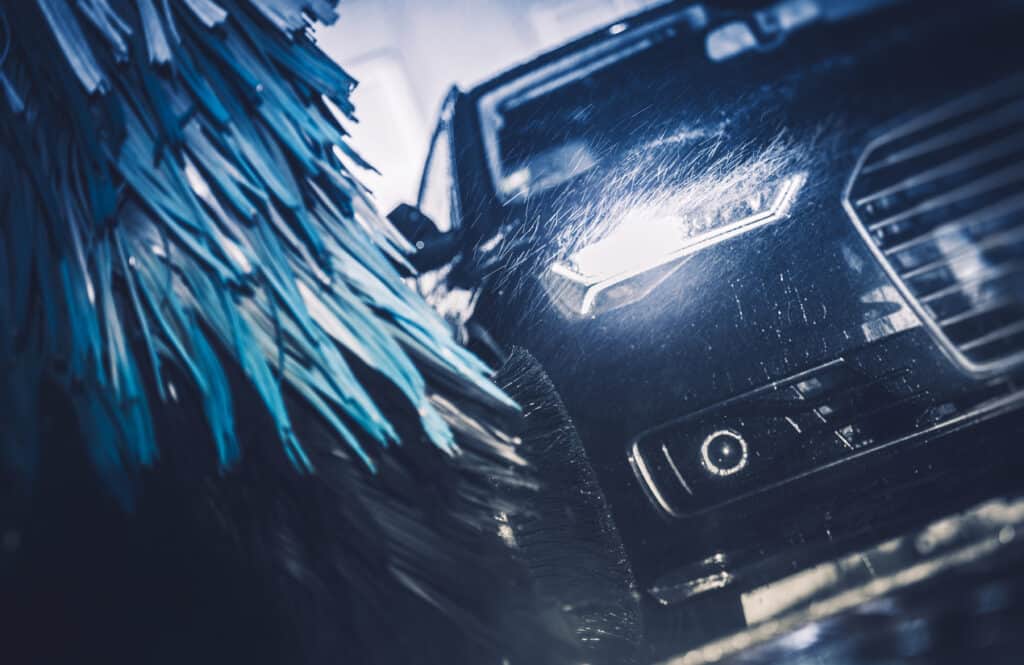
When you type in “best car wash near me,” the search engine you use will more than likely recommend an automated drive-thru car wash, an automotive detailing center, or a DIY car wash bay. Here are a few things to consider before selecting one car wash option over another.
Wash Quality
Commercial car washes are there to make money, so oftentimes they will scoop-up the cheapest car shampoo on the market, and then promote it as the ultimate car cleaning soap. The same can be said for the brushes, bristles, blasting nozzles, and various other components.
Even if you were able to find an automatic car wash or DIY spray bay that had decent tools and chemicals on deck, the chances that they would be in good working order after being used and abused, one car wash after another, is extremely slim.
Potential Risks
The risks associated with automated car washes are not just about the tools being implemented, but the car shampoos and water used as well. Hard water spots, pH chemical burns, and etching in unpainted plastics are just a few of the many risks you will have to contend with in the average “pay-to-spray” car wash.
If that doesn’t mess-up your vehicle’s exterior, there’s always the chance that the scrubbing media being used will mar hose shiny surfaces. All those brushes, strips of textile fabrics, and high pressure drying cloth equipped car wash mitters are notorious for forming swirl marks, paint scratches, striping, and cross-contamination.
Environmental Impact
According to a report focusing on watershed pollution drawn-up by the EPA, commercial car washes actually are better for the environment. But the findings go on to divulge some very disconcerting information, primarily that, “…most locations reuse wash water several times before sending it to a treatment plant.”
Remember that part about cross-contamination and car wash water being of questionable quality? Yeah, about that…
That being said, if you decide to scrub your ride at home or on the street, you can minimize damaging local water quality by implementing the following procedures.
- Always use biodegradable, phosphate-free, water-based cleaners.
- Minimize water usage runoff by utilizing a garden hose sprayer with flow restriction settings.
- Wash on a surface that absorbs and filters soapy water, like gravel, or grass.
- If you do have to wash the vehicle atop concrete or asphalt, make sure that water drains directly into a vegetated area, instead of straight down the drain.
- Empty wash buckets into sinks or toilets to avoid oversaturating the soil with chemicals.
Financial Cost
Even if you opted for the cheapest commercial car wash on the block, chances are a single wash is going to set you back at least $5.00 or so. Assuming that you wash your vehicle every two weeks as recommended, that breaks down to around $130 a year on sketchy automated car washes!
So while you’ll likely spend around the same amount of money on a slew of DIY car washing supplies in order to do the job at home, your up-front investment will last for years, and deliver far safer results.
Time Invested
Automated car washes have been engineered around convenience and efficiency. Conveyor-driven car washes are the microwave oven dinner of the automotive detailing world, both of which come loaded with just as many health risks as they do rewards.
When to Wash Your Car
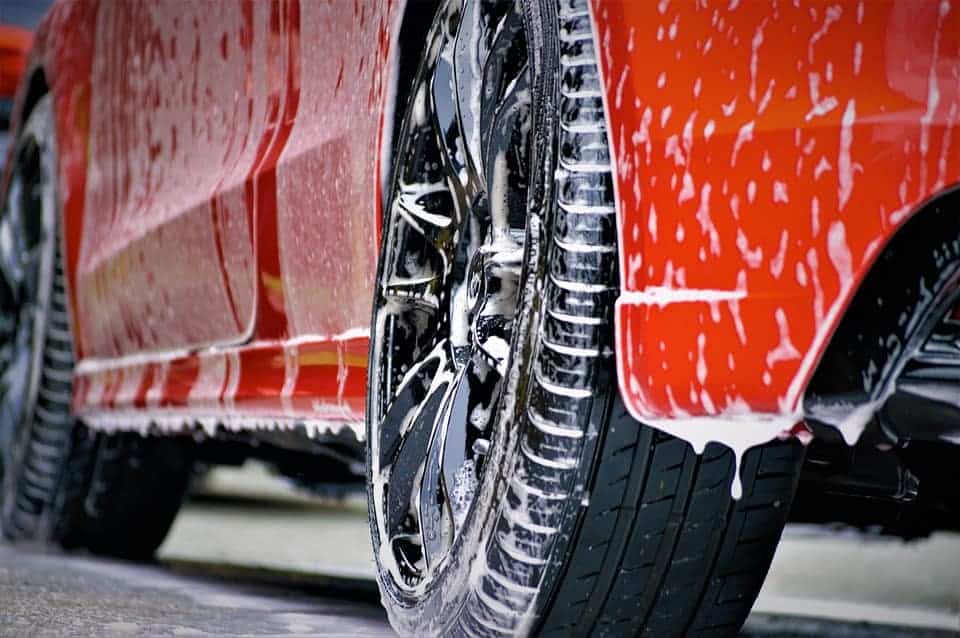
Ask the average car owner how what they think car washing frequencies should be, and you’ll hear everything from once a month, to twice a year, or even a, “Whenever I feel it’s too damn dirty!”
Two weeks. The answer is two weeks.
Ask any professional detailer or veteran DIY car wash devote this same question, and they will admit that every other week is the bare minimum for the average daily-driven automobile. However, if your vehicle is getting pummeled by copious amounts of pigeon poo, it’s probably a good idea to wash the vehicle ASAP, as avian excrement is super acidic.
So what do you do, if your ride suddenly gets bombarded by bird turds, and that garage packed with DIY car cleaning supplies is well out of reach? Do you take the chance, type-in “car wash near me,” and just hope for the best?
Here are a few things you should consider if you have no other option but to commit to that local car wash.
Know Your Car Wash Options

While they are quite convenient, using an automatic car wash is pretty much going to ruin your car’s clear coat, or worse yet, its paint. Yes, the pull-in car wash spray booths are far safer, but you have no idea where those grimy brushes have been, what quality of water is being utilized, or if the car shampoo being used is properly blended and pH balanced.
This leaves you with two options, which in the interest of fair reporting, boils down to mobile car cleaning services, and the classic car wash service center. Here are some of the pros and cons to each of these approaches.
Mobile Car Wash Services

One of the growing trends in the automotive arena, is the act of hiring a mobile car washing or auto detailing company to come clean your automobile onsite. This allows you to continue that heated argument with your boss, or lounge on the sofa in your undies, all while a trained professional gives your ride the shine it so desperately deserves.
What Does a Mobile Car Cleaning Entail?
When you schedule a mobile car wash appointment, you’ll need to determine whether you want the job done at home, work, or at another remote location. Just know that if you do plan on having this service conducted at a remote locale, you’ll first need to verify that a car wash can be completed on premise.
Location, time, and legalities addressed, you’ll then make your payment and go about your business. On the day of “the big scrub,” the mobile car wash specialist will show up with all of the necessary cleaning supplies, including water and a mat to park the vehicle atop of in order to keep run-off risks to a minimum. Different packages come with different cleaning options, including waterless car washing, interior detailing, engine bay cleaning, and more.
Mobile Car Wash Pros
- Convenient for the busy individual and typically includes deep cleaning services.
- Reduces the risk of damage associated with automated car washes.
- Can be conducted virtually anywhere.
- Truly an all-in-one service, complete with every imaginable cleaning tool and chemical.
Mobile Car Wash Cons
- Can be quite expensive, especially when more detail-oriented deep-cleaning packages are chosen.
- Remote services require getting permission from property owners.
- Most mobile detailing companies will only use a certain kind of cleaning chemical, or will insist on using their own brand of products. Many of these products tend to be overpriced, and are not always guaranteed to offer a pH balance that has been approved for ceramic coated surfaces.
Full Service Hand Car Wash

If you don’t want to pay someone to come clean your car while you are at home or work, but you don’t want to wash the vehicle yourself, it might be time to look for an old fashioned, brick-and-mortar hand-washing business.
What Does a Hand Car Wash Entail?
At these facilities, you’ll show up, pay the attendant for whatever car washing service you prefer, and then you’ll go hang out in the lobby or outside until the job is done.
Traditional car washes typically include an interior vacuuming and an automated wash tunnel, with many newer versions of this time-honored business utilizing touchless car washing products to reduce the risk of paint damage.
Once washed, the vehicle gets driven over to another location to be dried, at which point the vehicle will be detailed, and if so desired, buffed and waxed.
Hand Car Washing Pros
- Typically cheaper than a mobile car wash.
- Reputable hand-wash businesses tend to hire trained employees, so you can expect a thorough cleaning job, including a vacuuming and window scrubbing.
- Modern versions utilize no-touch conveyor-less wash tunnels, which reduce the risk of scuffs and super rough car wash bristles.
- From an aesthetics angle, some of the older car-wash businesses have gone virtually unchanged over the course of the past 50+ years, making for a really fun and unique car cleaning experience.
Hand Car Washing Cons
- Certain companies will still rely upon an on-site, conveyor automatic car wash.
- Multi-person hand-cleaning increases the risk of someone screwing-up your paint job or clear coat.
- Can get pricy if things like upholstery or interior detailing services are selected.
How to Complete a Car Wash at Home

If you’re looking to wash your car via a DIY approach, you are going to need to gather some supplies, and then study-up.
When it comes to DIY car washing, the two-bucket car wash method is the way to go, especially when combined with something like a foam cannon, and the right lineup of car detailing tools. Here’s what that process entails.
Supplies Needed for a Basic Two-Bucket DIY Car Wash
- Car Shampoo
There are a lot of really good car shampoos on the market, but choosing the one that is right for the job at hand is just as important as supporting a reputable brand. While they are all engineered to decontaminate and add shine to surfaces, you still have to be careful, for the automotive shampoo market contains a wide array of formulas and pH levels. For more on this, be sure to read our article about choosing the right car shampoo for wash day.
- Microfiber Chenille Wash Mitts
A microfiber chenille wash mitt is an automotive-specific scrubbing mitt that holds foamy lather for longer, and is not prone to causing surface scratches. To reduce the risk of cross-contamination, we suggest buying two mitts, one for washing the vehicle, and another for scrubbing the wheels and tires.
- Big Buckets
When we refer to the two-bucket wash method, we are referring to the act of scrubbing glass and painted surfaces with a rinse and suds bucket combo. Having a third bucket just for wheels and tires is a good idea as well, as you can always use the two-bucket method as a second and final round on the wheels and tires, but only after scrubbing the entire vehicle.
Quick Tip: If you plan on scrubbing your car’s wheels and tires, which you should seriously consider doing before and after washing the vehicle, you’ll need to procure a third bucket. Brake dust gets all over this region of an automobile, and contains things like scratch-inducing metal shavings and gritty, pulverized ceramic compounds. No need for a two-bucket approach here. Just dump the bucket’s contents after cleaning each wheel, rinse the bucket and your mitt, and reload them with fresh car shampoo before moving on to the next roller.
- Microfiber Towels
To dry your vehicle, you’ll need a multi-pack of microfiber towels. Just remember to work quickly, stay out of sunlight, and always use towels that are completely dry, as this will reduce the development of water spots.
- Garden Hose and Sprayer
The final piece of the proverbial puzzle, is a rinse hose with a spray nozzle. The more patterns and pressure options the better, and don’t forget to opt for the extra-long garden hose, because you’ll never know when you might need some additional reach.
The Two-Bucket Wash Method Explained

Once you’ve collected the right supplies, you’re ready to begin the process of washing the vehicle. Here’s how you are going to properly complete this task.
Step #1: Set Up Your Supplies

Set up everything you think you may need near the vehicle. There’s nothing quite like realizing you forgot your microfiber drying cloth inside, only to return to find your vehicle has been coated in hard water spots.
Step #2: Prewash the Vehicle

Always spray the vehicle with water prior to scrubbing it, as this is the equivalent of taking a shower before hopping in a bath. Working with a wet surface also means that it has been thoroughly lubricated, which will help reduce the formation of scratching and dried car shampoo spots.
Step #3: Scrub Your Wheels and Tires First

Remember when we said to use a separate set of supplies for the wheels and tires because brake dust has small metal shavings? Well, when you wash your wheels and tires, all that excess debris goes everywhere. By washing the wheels first, you can wash-off any gritty residue from surrounding body panels without running the risk of grinding it into the paint.
Step #4: Work From Top-to-Bottom, Scrubbing One Section at a Time

Using the two-bucket method, wash and rinse one section or body panel at a time, starting with the top, and working your way downward from there.
The lower portions of a vehicle are oftentimes the filthiest, hence the need for a top-to-bottom approach. Also, making sure that you rinse the entire vehicle with water after every scrubbing cycle will keep things slick, reduce water spots, and remove floating debris.
Step #5: Dry the Vehicle

Drying a vehicle can make or break the car washing experience, which is why we recommend using multiple microfiber towels, and replacing them when they become overly saturated. Microfiber does an outstanding job of capturing contaminants, but should never be pressed to firmly, for you may grind whatever gunk is on the surface past that pool of standing water, and into the paint.
Quick Tip: Never use dish soap, industrial-grade detergent, or household cleaning supply on your automobile, as the pH levels of these products tends to damage clear coat and paint.
Step #6: Protect Your Investment

Car wash complete, it’s now time to complete a full surface protectant install. While car waxes and paint sealants are inexpensive and will work in a pinch, they do not protect surfaces against things like chemicals and scratches very well. And for as badass as paint protection films (PPF) are, they tend to be extremely expensive and often require a professional install.
This explains why more and more people are favoring 9H-rated nano ceramic coatings over all other protection products, and why Armor Shield IX remains the highest rated DIY ceramic coating surface protectant on the planet.
Parting Shots

While typing in “car wash near me” may yield quite a few results, very rarely will this provide the results your vehicle so desperately deserves. Sure, things like professional mobile detailing services typically bring forth a fantastic finished product, but they also come at a premium in the pocketbook department.
So if you’ve got the space, time, tools, and interest, give the old-fashioned DIY two-bucket car wash a shot. Chances are you’ll be blown away by the results.

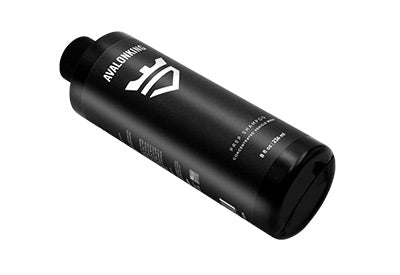
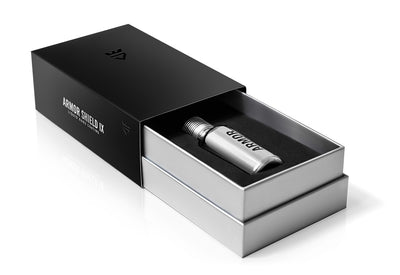
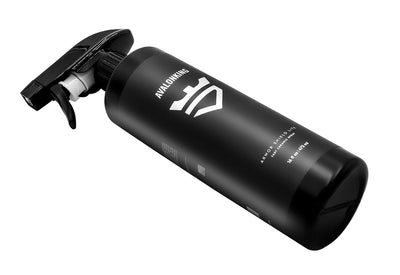
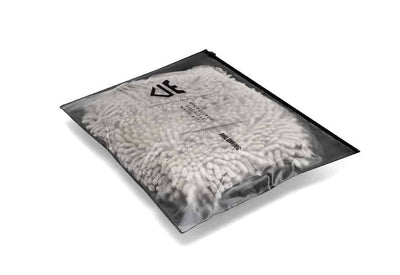

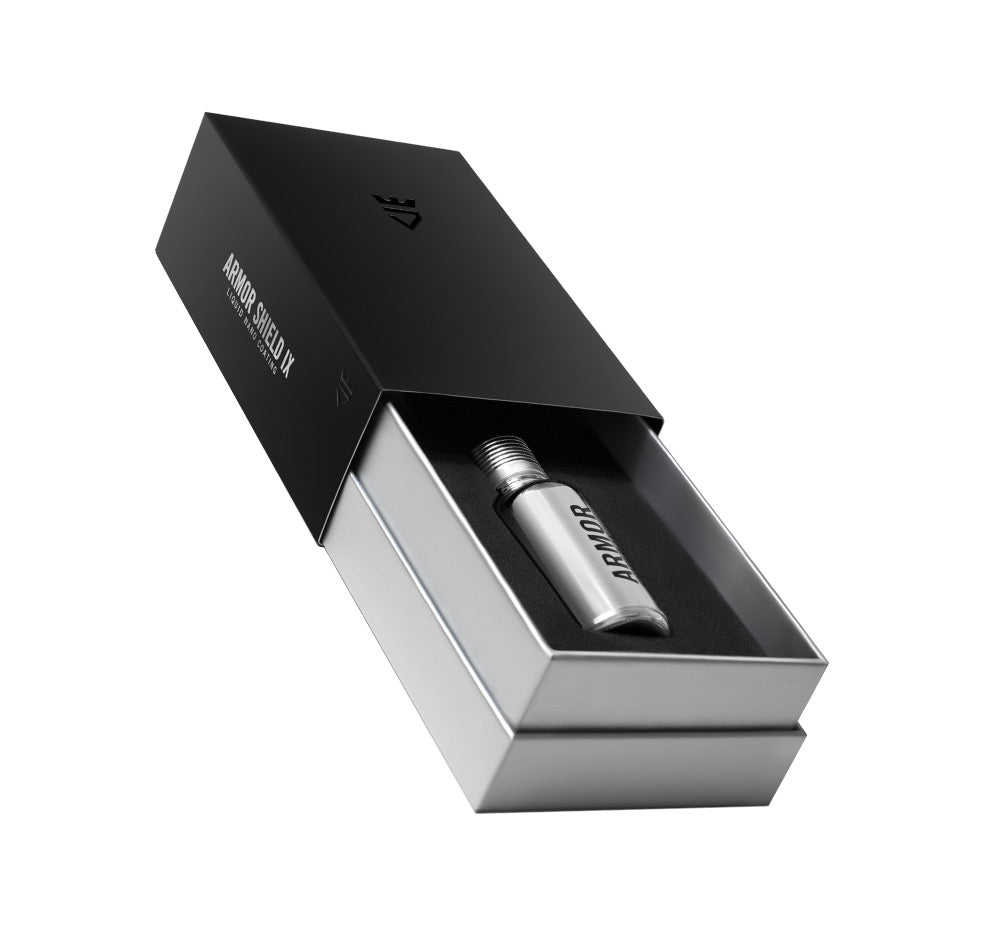
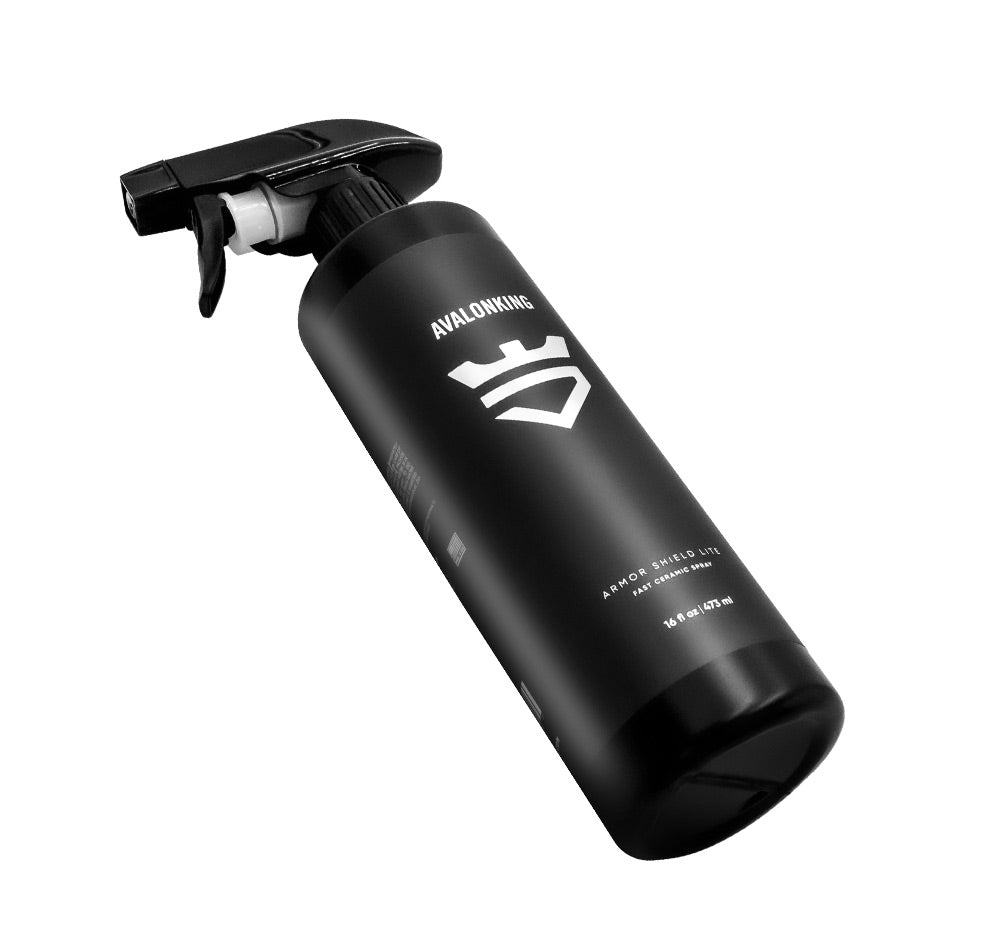
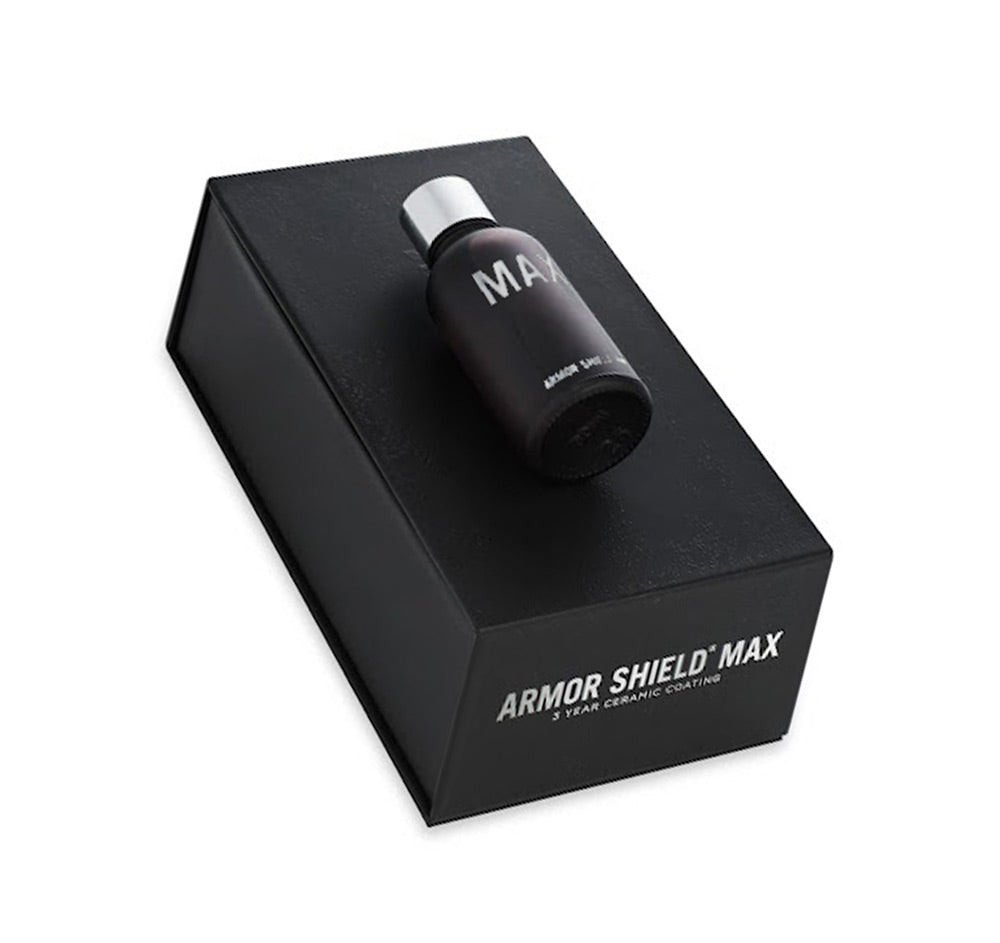
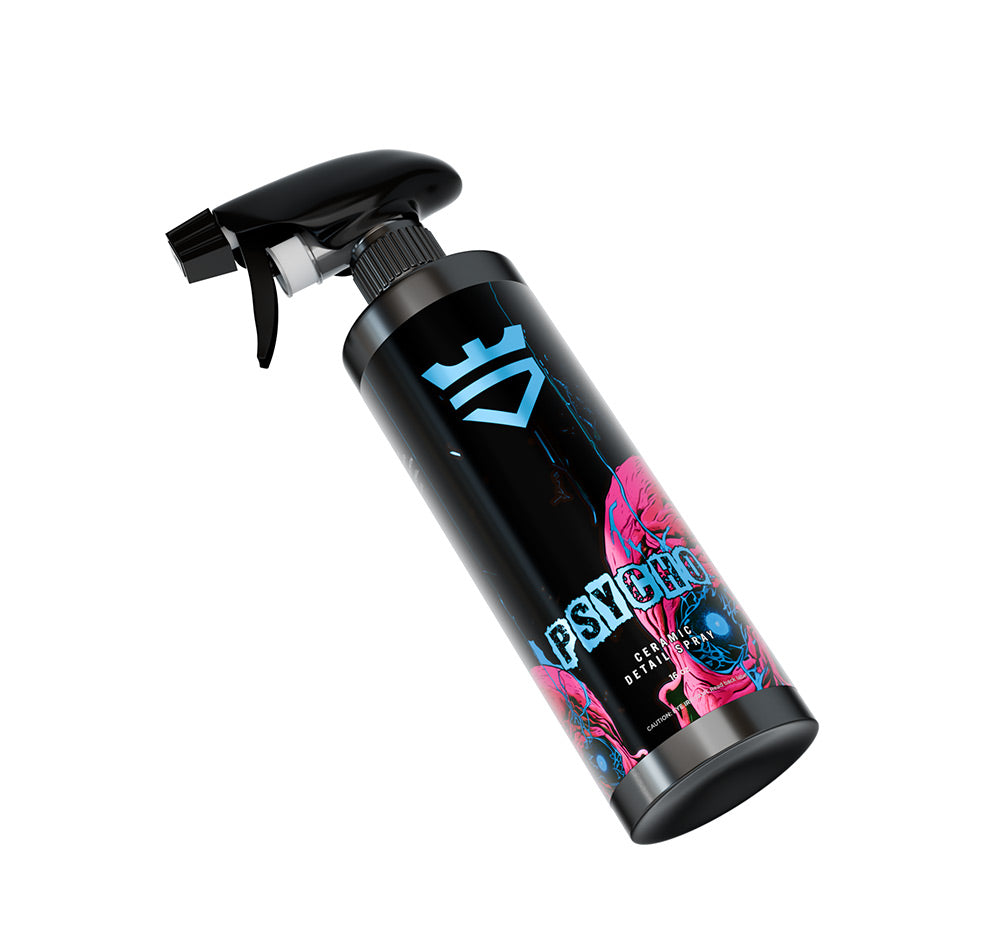
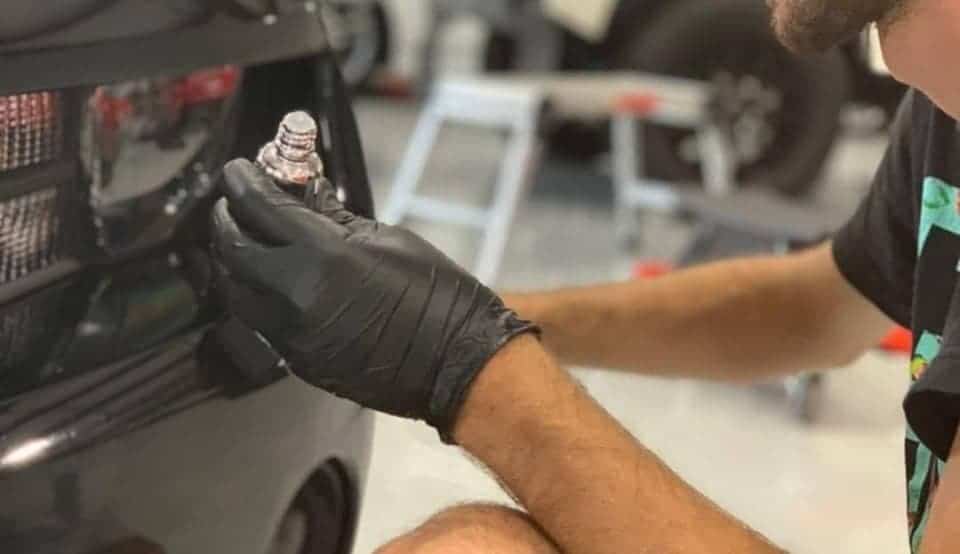
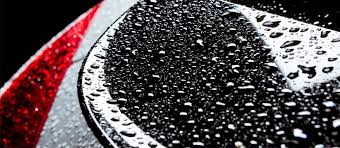

5 comments
Jonathon
Nice blog! One should wash or clean their car by professional car washing companies for better results. And before selecting you need to check whether they are experienced, give you services as you want, and use high-quality material for car wash or not.
Nice blog! One should wash or clean their car by professional car washing companies for better results. And before selecting you need to check whether they are experienced, give you services as you want, and use high-quality material for car wash or not.
Evans Cobbinah
Please am a car washer so i want to come to Canada and work for there .And i have 9 years experience in car wash. Thanks
Please am a car washer so i want to come to Canada and work for there .And i have 9 years experience in car wash. Thanks
Rooh Afza
its so true. I myself was too confused with so many companies offering car wash in kolkata and everyone saying they are the best. I finally thought I should go with one that’s closest to my place but sadly that was closed. After doing some research, I booked a wash using ragilly doorstep car wash in kolkata and i was happy with the services. Also i had used tristal, frego, cleanmycar and other services which are equally good. But once I tried car wash of jumbigola and well, the car wash was so bad, my car’s color faded completely. So, yes, do your research and choose which is best for you.
its so true. I myself was too confused with so many companies offering car wash in kolkata and everyone saying they are the best. I finally thought I should go with one that’s closest to my place but sadly that was closed. After doing some research, I booked a wash using ragilly doorstep car wash in kolkata and i was happy with the services. Also i had used tristal, frego, cleanmycar and other services which are equally good. But once I tried car wash of jumbigola and well, the car wash was so bad, my car’s color faded completely. So, yes, do your research and choose which is best for you.
Steve M.
I agree with Stefan. I have been in the Car Wash Industry since 1984. A properly maintained. Automated, Professional Car Wash, uses less water, than the average person washing their car in the driveway. The chemicals, ( Pre Soak,soap, wax, drying agent, and FRESH WATER RINSE) are all made to work together. To deliver a CLEAN, DRY, Vehicle, to the paying customer. My Car Wash, does not use reclaimed water, HOWEVER, car washes that do, will still, use FRESH WATER AS A RINSE, resulting in a clean car!
I agree with Stefan. I have been in the Car Wash Industry since 1984. A properly maintained. Automated, Professional Car Wash, uses less water, than the average person washing their car in the driveway. The chemicals, ( Pre Soak,soap, wax, drying agent, and FRESH WATER RINSE) are all made to work together. To deliver a CLEAN, DRY, Vehicle, to the paying customer. My Car Wash, does not use reclaimed water, HOWEVER, car washes that do, will still, use FRESH WATER AS A RINSE, resulting in a clean car!
Stefan K
“Impact on the Environment: On average, washing the car yourself will use less water than a commercial car wash. As such, you’ll help Mother Nature.” Can you please provide your source and data for this? It also looks like you omitted the fact that washing your car at home can cause the untreated runoff to flow into storm drains and thus into your local waterways, harming aquatic wildlife. Commercial car washing is far better for the environment than washing it at home as commercial car washes are required by federal law to discharge to the sanitary sewer system, versus the storm system. We’ll be waiting on the data supporting your claim above.
“Impact on the Environment: On average, washing the car yourself will use less water than a commercial car wash. As such, you’ll help Mother Nature.” Can you please provide your source and data for this? It also looks like you omitted the fact that washing your car at home can cause the untreated runoff to flow into storm drains and thus into your local waterways, harming aquatic wildlife. Commercial car washing is far better for the environment than washing it at home as commercial car washes are required by federal law to discharge to the sanitary sewer system, versus the storm system. We’ll be waiting on the data supporting your claim above.